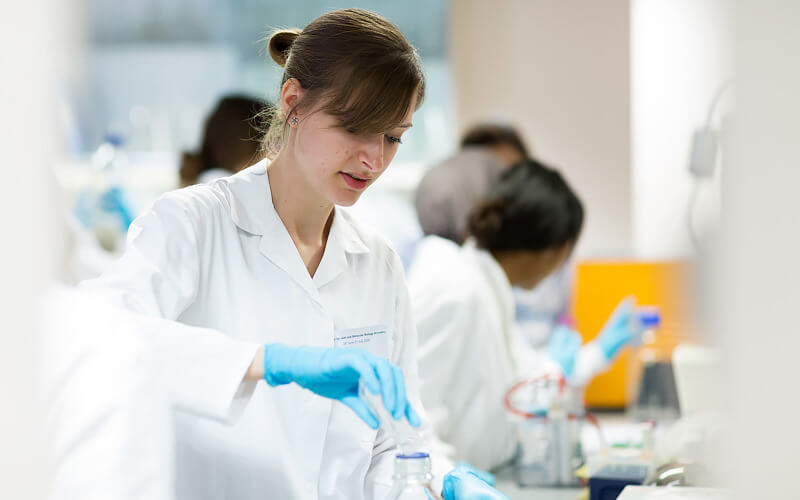Infection and Immunity MSc
London, Bloomsbury
Study mode
Overseas tuition fees (2024/25)
£34,400
£17,200
Programme also available on a modular (flexible) basis.
Duration
1 calendar year
2 calendar years
5 calendar years
Programme starts
September 2024
Applications accepted
Applicants who require a visa:
16 Oct 2023 –
28 Jun 2024
Applications closed
Applicants who do not require a visa:
16 Oct 2023 –
30 Aug 2024
Applications close at 5pm UK time
Applications open
Visit us
Online - Open day
Graduate Open Events: Infection and Immunity MSc and Experimental and Translational Immunology MSc/MRes
This online session will provide you with an overview of our Masters Programmes in the Division of Infection and Immunity. The programme overviews will be followed by a Q&A session with our programme leads.
UCL is regulated by the Office for Students.



